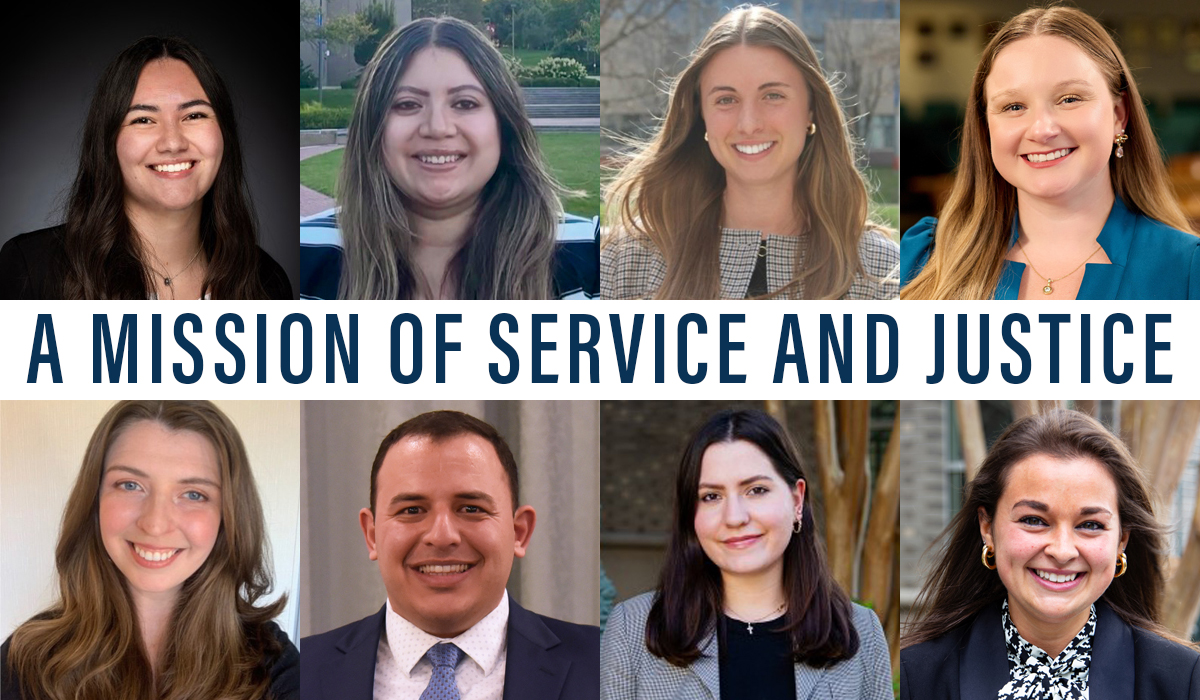
At the Columbus School of Law, the pursuit of justice extends far beyond the classroom. A core component of the Catholic Law experience is the commitment to serving others, a principle embodied by the school's robust pro bono program. This initiative not only provides essential legal services to underserved communities but also offers students invaluable hands-on experience, shaping them into compassionate and skilled legal professionals.
A Mission of Service and Justice
The pro bono program is an optional, non-credit opportunity that encourages students to use their developing legal skills to make a tangible impact. By volunteering their time, students address the critical justice gap affecting countless individuals who cannot afford legal representation. This commitment to service is a cornerstone of Catholic Law's mission, fostering a culture of giving back that students carry with them throughout their professional careers.
Participation in the program allows students to:
- Gain Practical Legal Skills: Engage in real-world legal work, including client interviews, legal research, and document preparation.
- Explore Diverse Practice Areas: Work on a wide range of legal issues, from immigration and family law to housing and public benefits.
- Build a Professional Network: Connect with practicing attorneys, public interest leaders, and community organizations.
- Fulfill State Bar Requirements: Earn hours toward the pro bono requirements for admission to the bar in states like New York.
- Michael Curtain Pro Bono Awards: Presented to one day and one evening student at graduation, honoring exceptional dedication to pro bono service.
- Pro Bono Honor Roll: Recognition for students who meet the program's service hour benchmarks, celebrating their commitment to serving the community.
- Commencement Booklet: Students receive special notation in Catholic Law’s Commencement booklet, signaling their commitment to justice and service.
The Pro Bono Advisory Board
Steering the program's success and ensuring its alignment with student interests is the Pro Bono Advisory Board. This dedicated group of students works in close collaboration with the Office of Career and Professional Development to promote, manage, and expand service opportunities.
The Advisory Board plays a vital role in the program's operations by:
- Promoting Opportunities: Raising awareness about upcoming pro bono projects and events within the law school community.
- Organizing Projects: Coordinating training sessions and service trips, such as the popular alternative spring break program.
- Inspiring Participation: Acting as ambassadors for public service and encouraging fellow students to get involved.
- Providing Student Feedback: Serving as a liaison between the student body and the administration to ensure the program remains responsive and effective.
The leadership and initiative of the Advisory Board are crucial to the pro bono program's vibrancy. Their efforts help cultivate a community where service is not just an activity, but a shared value. Through their work, the board ensures that every Catholic Law student has the chance to discover the profound personal and professional rewards of pro bono service.
Below are highlights from the 2024-25 school year, as submitted by the Pro Bono Advisory Board, showcasing the remarkable impact of our students' service.
DC Bar Pro Bono Center Advice & Referral Clinic (By Katie Mars, 3E)
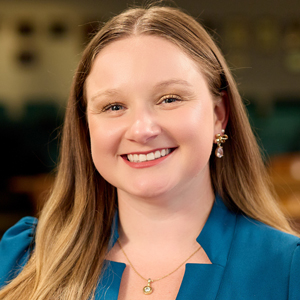 I have volunteered with the DC Bar Pro Bono Center’s Advice and Referral Clinic over the past three school years. The clinic is hosted one Saturday morning a month and provides brief legal advice on civil issues in DC. Student volunteers conduct intake interviews to learn about the client and their issue and then present an overview to the lawyer, who may then provide brief legal advice. The clinic also has an opportunity to shadow a lawyer while they give advice and consult with an issue area expert. As an evening student with minimal legal background, this clinic exposed me to a variety of civil issues in a controlled environment where there was supervision and support from attorneys. I appreciated seeing what I was learning in class, especially core courses like Civil Procedure and Property, applied to real life. The opportunity to interact with clients and learn from lawyers has been helpful for my academic and professional journey, especially as an evening student who works during the day and has limited opportunities for exposure through externships and internships. Serving at the DC Bar Pro Bono Center’s Advice and Referral Clinic is an awesome opportunity for students to get more exposure to civil issues, client engagement, and local attorneys, so that you can apply classroom learning to real life clients.
I have volunteered with the DC Bar Pro Bono Center’s Advice and Referral Clinic over the past three school years. The clinic is hosted one Saturday morning a month and provides brief legal advice on civil issues in DC. Student volunteers conduct intake interviews to learn about the client and their issue and then present an overview to the lawyer, who may then provide brief legal advice. The clinic also has an opportunity to shadow a lawyer while they give advice and consult with an issue area expert. As an evening student with minimal legal background, this clinic exposed me to a variety of civil issues in a controlled environment where there was supervision and support from attorneys. I appreciated seeing what I was learning in class, especially core courses like Civil Procedure and Property, applied to real life. The opportunity to interact with clients and learn from lawyers has been helpful for my academic and professional journey, especially as an evening student who works during the day and has limited opportunities for exposure through externships and internships. Serving at the DC Bar Pro Bono Center’s Advice and Referral Clinic is an awesome opportunity for students to get more exposure to civil issues, client engagement, and local attorneys, so that you can apply classroom learning to real life clients.
Students can learn about this and similar opportunities through the OCPD Student and Alumni Guides/Resources folder under ‘Pro Bono Opportunities’.
Washington Lawyers Committee, Workers Rights Clinic (By Albert Anaim, 3D)
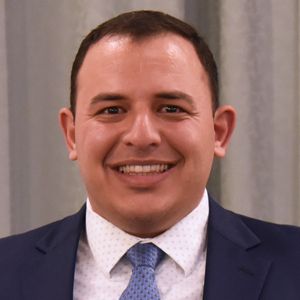 My plan in coming to law school was to work for the government, investigating and trying companies and unions for unlawful activity. I started volunteering at the Workers' Rights Clinic, hosted by the Washington Lawyers' Committee (WRC), because I thought I would not be serving individual clients in this practice area, and I felt if I did not have direct experience with individual clients I would be missing out on a major part of being a lawyer. And so I turned to pro bono work as an opportunity to both serve those who are underrepresented, and to see what it was like to work with individual clients.
My plan in coming to law school was to work for the government, investigating and trying companies and unions for unlawful activity. I started volunteering at the Workers' Rights Clinic, hosted by the Washington Lawyers' Committee (WRC), because I thought I would not be serving individual clients in this practice area, and I felt if I did not have direct experience with individual clients I would be missing out on a major part of being a lawyer. And so I turned to pro bono work as an opportunity to both serve those who are underrepresented, and to see what it was like to work with individual clients.
At the WRC, we primarily deal with low income individuals who face discrimination at work. We deal with wrongful terminations, wage theft, and all forms of discrimination by management. As a student volunteer, my time is spent doing intake and issue spotting with clients. After I speak with the client, I speak with the lead attorneys who decide what legal advice to provide.
My favorite part of my time with WRC has been working with the attorneys and seeing first hand how they think through real legal problems with real consequences. WRC has made me better at issue spotting, in providing an opportunity to grow in understanding what information is important and what information is not. Most importantly, however, I am able to see first-hand what it is like to work with attorneys who are passionate about their field and who want to help less privileged individuals get redress or justice. It is this passion from the lawyers for their work and their clients that keeps me coming back to the WRC.
Students can learn about this and similar opportunities through the OCPD Student and Alumni Guides/Resources folder under ‘Pro Bono Opportunities’.
Amica (By Cynthia Turcios, 4E)
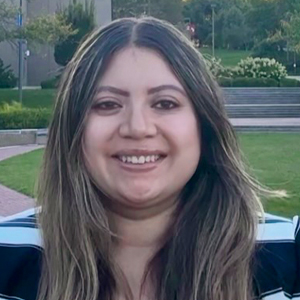 I discovered AMICA through the law school’s pro bono opportunities list and began assisting with intakes, translations, and other immigration-related tasks. During my daytime role, I work in real estate and business development in the public sector. The Career Center and my pro bono opportunities have been a huge part of my journey as an evening student, allowing me to explore areas I might not have had the chance to otherwise.
I discovered AMICA through the law school’s pro bono opportunities list and began assisting with intakes, translations, and other immigration-related tasks. During my daytime role, I work in real estate and business development in the public sector. The Career Center and my pro bono opportunities have been a huge part of my journey as an evening student, allowing me to explore areas I might not have had the chance to otherwise.
Students can learn about this and similar opportunities through the OCPD Student and Alumni Guides/Resources folder under ‘Pro Bono Opportunities’.
1L Spring Break Trip (By Cynthia Turcios, 4E)
Early on in my first year, I got an email from the Law School about a Spring Break Service Trip. Prior to this, I was not exposed to pro bono work. At first, I was not sure if I should apply since I was just a first-year, but I am so glad I did. We were able to translate for clients, visit a detention center, and do legal research for the legal team at the Southeast Immigrant Freedom Initiative (SIFI). I really appreciate the school for giving several of us the chance to go to rural Georgia and work with the Southern Poverty Law Center. Since then, I have continued working with them remotely on immigration issues, which has been a really rewarding experience.
Information to be announced in November regarding the application process for 2026's Spring Break trip.1L Spring Break Trip (By Andrea Quinan, 3D)
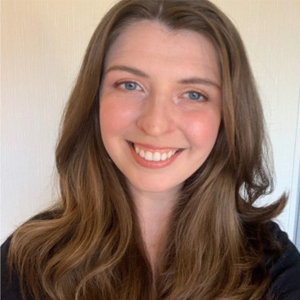 During the spring of my 1L year, I was fortunate enough to go to Harlingen, Texas with Jocelyn Dyer and three other students for a Pro Bono Service Trip. On that trip, we got a crash course in immigration law from the attorneys at the ABA South Texas Pro Bono Asylum Representation Project (“ProBar”). Then, we attended a “Know Your Rights” presentation at the El Valle Detention Center. We next conducted intake interviews with a couple of inmates at the detention center to see if ProBar could take their cases or refer them to other nonprofits in the area. We then got to volunteer at a Catholic Charities respite center where we gave a “Know Your Rights” presentation and answered questions that the people staying at the respite center had about the immigration system. Finally, we traveled to the Brownsville port of entry where we held a work authorization clinic. In that clinic, I got to interact with people who travelled across the border that day. I was one of the first people they met in the United States, and, because I speak Spanish, I got to welcome some of them in their native language. Then, I helped them fill out work authorization forms so they could start making money while they are here. That clinic was the first time I got to experience using my legal skills to help someone in a way that would directly affect their lives in a positive way. It was truly a formative experience.
During the spring of my 1L year, I was fortunate enough to go to Harlingen, Texas with Jocelyn Dyer and three other students for a Pro Bono Service Trip. On that trip, we got a crash course in immigration law from the attorneys at the ABA South Texas Pro Bono Asylum Representation Project (“ProBar”). Then, we attended a “Know Your Rights” presentation at the El Valle Detention Center. We next conducted intake interviews with a couple of inmates at the detention center to see if ProBar could take their cases or refer them to other nonprofits in the area. We then got to volunteer at a Catholic Charities respite center where we gave a “Know Your Rights” presentation and answered questions that the people staying at the respite center had about the immigration system. Finally, we traveled to the Brownsville port of entry where we held a work authorization clinic. In that clinic, I got to interact with people who travelled across the border that day. I was one of the first people they met in the United States, and, because I speak Spanish, I got to welcome some of them in their native language. Then, I helped them fill out work authorization forms so they could start making money while they are here. That clinic was the first time I got to experience using my legal skills to help someone in a way that would directly affect their lives in a positive way. It was truly a formative experience.
1L Spring Break Trip (By Ashleigh Wilson, 2D)
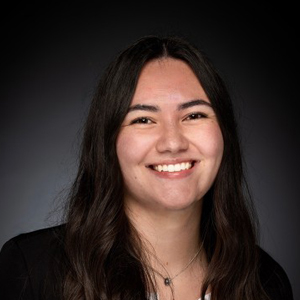 As a 1L, I attended the Alternative Spring Break Immigration Trip to New Mexico and Texas. Throughout the week we worked with New Mexico Immigrant Law Center (NMILC) to submit parole applications for individuals in immigration detention, which involved meeting directly with clients to learn about their asylum cases and background, and contacting their potential sponsors to compile documents and complete a letter of support. We also visited detention centers to help detainees understand their rights and assist in the completion of intake forms for asylum representation by NMILC. Our group worked on about 20 parole applications and by the end of the week, I was able to help submit a parole application to ICE for my client. This trip had a great impact on my first year and law school experience. My confidence increased greatly in my ability to interview and connect with clients. I also gained a deeper understanding of the importance of advocates dedicated to advancing immigrant rights and the need for accountability within immigration detention centers.
As a 1L, I attended the Alternative Spring Break Immigration Trip to New Mexico and Texas. Throughout the week we worked with New Mexico Immigrant Law Center (NMILC) to submit parole applications for individuals in immigration detention, which involved meeting directly with clients to learn about their asylum cases and background, and contacting their potential sponsors to compile documents and complete a letter of support. We also visited detention centers to help detainees understand their rights and assist in the completion of intake forms for asylum representation by NMILC. Our group worked on about 20 parole applications and by the end of the week, I was able to help submit a parole application to ICE for my client. This trip had a great impact on my first year and law school experience. My confidence increased greatly in my ability to interview and connect with clients. I also gained a deeper understanding of the importance of advocates dedicated to advancing immigrant rights and the need for accountability within immigration detention centers.
Migrant Solidarity Mutual Aid Network Clinic (By Ashleigh Wilson, 2D)
Volunteering with the Migrant Solidarity and Mutual Aid (MSMA) Clinic has given me the opportunity to support individuals and families in their asylum applications. My duties in this clinic are to interview clients, compile documents, and fill out I-589 Asylum forms to assist lawyers and clients in submitting applications for asylum. It is gratifying and exciting to know that my work with people in the MSMA allows them to be one step closer to apply for and receive asylum. My favorite part is getting to know the clients and their stories of resilience and their aspirations. Volunteering in the MSMA clinic has greatly improved my client skills, especially in interviewing and writing narratives. It is essential in asylum applications that the client’s story be told in great detail and in a way that meets the specific criteria, and I have learned a lot about how to collect and convey this information to submit to USCIS. It has also given me an opportunity to work directly with clients and attorneys to understand more about the concerns and needs of immigrant communities in the area.
Students can learn about this and similar opportunities through the OCPD Student and Alumni Guides/Resources folder under ‘Pro Bono Opportunities’.
Innocence Project (By Sammy Popper, 2D)
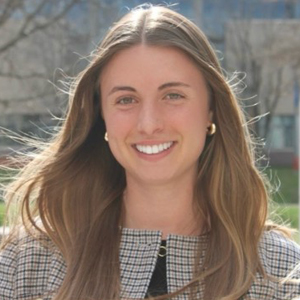 As a 1L, my work with the Pro Bono Advisory Board was incredibly fulfilling. When I first applied to law school, one of my goals was to support the Innocence Project’s mission of exonerating the wrongfully convicted. The Pro Bono Advisory Board provided me with the opportunity to turn that goal into a reality. With the help of Catholic Law’s pro bono organization and my fellow Board members, I was able to create and lead a new initiative for 1Ls with the Innocence Project. Through this partnership, we assisted the Innocence Project’s Mid-Atlantic office by writing letters to clients, their families, former attorneys, and more. It was inspiring to see the Catholic community’s students come together in service. I look forward to continuing my work with the Innocence Project and exploring more pro bono opportunities over the next two years.
As a 1L, my work with the Pro Bono Advisory Board was incredibly fulfilling. When I first applied to law school, one of my goals was to support the Innocence Project’s mission of exonerating the wrongfully convicted. The Pro Bono Advisory Board provided me with the opportunity to turn that goal into a reality. With the help of Catholic Law’s pro bono organization and my fellow Board members, I was able to create and lead a new initiative for 1Ls with the Innocence Project. Through this partnership, we assisted the Innocence Project’s Mid-Atlantic office by writing letters to clients, their families, former attorneys, and more. It was inspiring to see the Catholic community’s students come together in service. I look forward to continuing my work with the Innocence Project and exploring more pro bono opportunities over the next two years.
Veterans Consortium Pro Bono Clinic (By Taylor Talley, 3D)
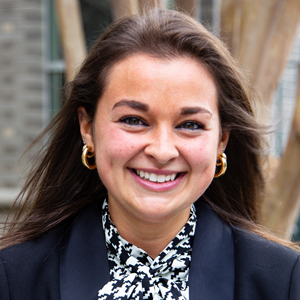 After interning with the JAG Corps after my first summer of law school, I began searching for more ways I could give back to veterans in the local community. The Veterans Consortium Pro Bono Clinics offers advice and referral clinics in-person and online. The clinics provide information, guidance, and resources to individuals who are seeking information on family law, consumer law, employment law, housing law, and disability/benefits claims. Volunteering with the Veterans Consortium has allowed me to see firsthand the issues that veterans face in the Greater Washington area, and further connected me with attorneys who volunteer for the same cause.
After interning with the JAG Corps after my first summer of law school, I began searching for more ways I could give back to veterans in the local community. The Veterans Consortium Pro Bono Clinics offers advice and referral clinics in-person and online. The clinics provide information, guidance, and resources to individuals who are seeking information on family law, consumer law, employment law, housing law, and disability/benefits claims. Volunteering with the Veterans Consortium has allowed me to see firsthand the issues that veterans face in the Greater Washington area, and further connected me with attorneys who volunteer for the same cause.
Students can learn about this and similar opportunities through the OCPD Student and Alumni Guides/Resources folder under ‘Pro Bono Opportunities’.
CASA for Children of DC (By Taylor Talley, 3D)
After my first year of law school, I knew I wanted to get involved in something in the family law space. When the training finally lined up with my schedule, I chose to begin with Court Appointed Special Advocates (CASA) for Children of DC. At CASA, each CASA strives to provide stability, permanency, and support in the lives of abused and neglected children in the DC foster care or juvenile justice system. Working as a CASA has allowed me to see the interaction between children in the Greater Washington area and the criminal justice system. Being able to attend court as a CASA, write court reports on behalf of my child, and form that relationship has been one of the most rewarding experiences of law school. I serve as a mentor and a friend to my CASA child, while also seeing the interaction between social workers, Guardian ad Litem’s, and attorney’s with them.
Students can learn about this and similar opportunities through the OCPD Student and Alumni Guides/Resources folder under ‘Pro Bono Opportunities’.
DC Bar Advice and Referral Clinic (By Jennifer Rodriguez, 2D)
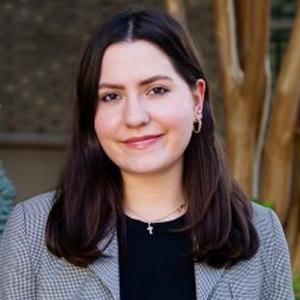 As a 1L, I had the opportunity to volunteer at the DC Bar Pro Bono Advice and Referral Clinic. I truly enjoyed the experience because it allowed me to explore a wide range of legal areas while giving back to the community. I had the opportunity to shadow attorneys who practiced in medical malpractice, landlord-tenant law, and torts, which gave me valuable insight into how different areas of law operate in real-world contexts. What stood out most were the stories I heard from people who came to the clinic seeking help—many of whom were struggling with difficult personal and financial circumstances. It was both heartwarming and heartbreaking to listen to their experiences and to see attorneys working for free to find legal solutions that could make a difference in their lives. The experience reminded me that those who need legal help the most often have the least access to it, and it was incredibly rewarding to play even a small part in helping bridge that gap.
As a 1L, I had the opportunity to volunteer at the DC Bar Pro Bono Advice and Referral Clinic. I truly enjoyed the experience because it allowed me to explore a wide range of legal areas while giving back to the community. I had the opportunity to shadow attorneys who practiced in medical malpractice, landlord-tenant law, and torts, which gave me valuable insight into how different areas of law operate in real-world contexts. What stood out most were the stories I heard from people who came to the clinic seeking help—many of whom were struggling with difficult personal and financial circumstances. It was both heartwarming and heartbreaking to listen to their experiences and to see attorneys working for free to find legal solutions that could make a difference in their lives. The experience reminded me that those who need legal help the most often have the least access to it, and it was incredibly rewarding to play even a small part in helping bridge that gap.
Students can learn about this and similar opportunities through the OCPD Student and Alumni Guides/Resources folder under ‘Pro Bono Opportunities’.
